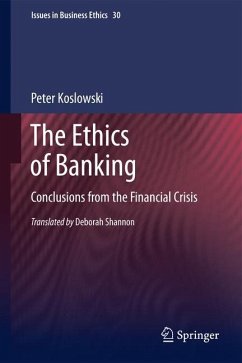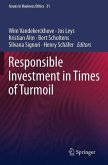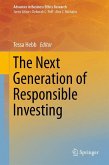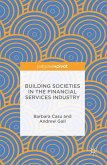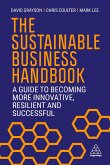The Ethics of Banking analyzes the systemic and the ethical mistakes that led to the crisis. It keeps the middle ground between excusing all failures by the argument of a systemic crisis not to be taken responsibility for by the financial managers and the moralistic reproach that only moral failure is at the origin of the crisis. It investigates the role of speculation in the formation of the crisis and distinguishes between productive speculation for hedging and for securing market liquidity on the one hand, and unproductive and even detrimental hyper-speculation going far beyond of the degree of speculation that is necessary in a developed economy for the liquidity of financial markets, on the other hand. Hyper-speculation has increased the risks of the financial system and is still doing so. This book analyzes the systemic and the ethical mistakes that have led to the financial crisis of 2008. It explores the middle ground between the argument that financial managers cannot beexpected to take responsibility for a systemic crisis and the argument that moral failure is the one and only origin of the crisis. The book investigates the role of speculation in the formation of the crisis. It distinguishes between productive speculation for hedging and for securing market liquidity on the one hand, and unproductive and even detrimental hyper-speculation, on the other. The book argues that hyper-speculation goes far beyond the degree of speculation that is necessary for the liquidity of financial markets in a developed economy, and has thus increased the risks of the financial system and will continue to do so. This book offers an ethics of banking and an ethical economy of the financial markets to counterbalance the financial industry s purely economic approach.
Bitte wählen Sie Ihr Anliegen aus.
Rechnungen
Retourenschein anfordern
Bestellstatus
Storno

